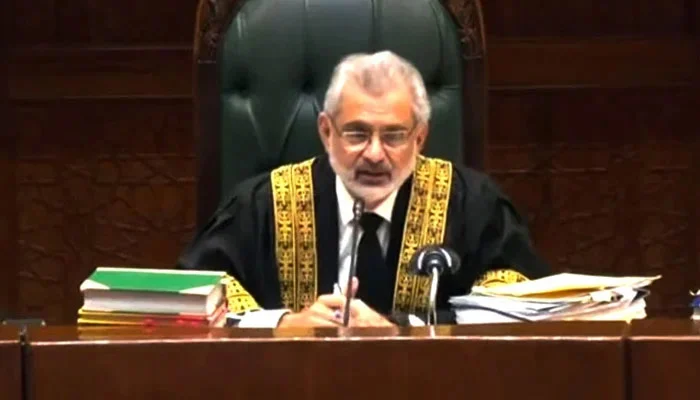ISLAMABAD: The Supreme Court of Pakistan has called for a review and amendment of the Anti-Smuggling Act of 1977, highlighting significant defects within the current legislation. This recommendation comes as part of a detailed 7-page decision authored by Justice Shahid Waheed. Copies of the decision have been dispatched to the Attorney General, the Law and Justice Commission, and the Law Secretary for further action.
Examination and Findings
The Supreme Court’s examination of the Anti-Smuggling Act uncovered several critical flaws. The decision underscores that the right of appeal under the current law is exclusively granted to the accused, which effectively limits the government’s ability to challenge decisions that may favor the accused parties. This imbalance, the court argues, undermines the effectiveness of anti-smuggling efforts and tilts the scales of justice disproportionately.
Case Study: Ubaid Khan and the ANF
The decision references a specific case from 1998 involving Ubaid Khan, who was accused of acquiring property through smuggling activities. The Anti-Narcotics Force (ANF) lodged a complaint against Khan, highlighting the procedural limitations imposed by the Anti-Smuggling Act. According to the current legislation, the ANF’s role is restricted to reporting to a Special Judge, after which the ANF’s involvement in the case ceases.
Once the complaint is lodged, the matter is handled solely between the judge and the accused, with the ANF having no further participatory role or right to appeal the decision. This procedural limitation was exemplified when the Peshawar High Court dismissed an appeal from the ANF on the grounds that the force was not considered an affected party under the existing law.
Recommendations for Legislative Reform
In light of these findings, the Supreme Court has formally recommended that Parliament review and amend the Anti-Smuggling Act of 1977. The court’s decision suggests that the current framework is flawed and favors the accused by denying the state or its representatives the right to appeal. This gap, the court argues, is not consistent with global standards where the state typically retains the right to appeal in anti-smuggling and anti-trafficking laws.
The Supreme Court’s recommendations are aimed at creating a more balanced and effective legal framework. By enabling the state to appeal, the proposed amendments would enhance the government’s capacity to enforce anti-smuggling laws and ensure that justice is served more equitably.
Broader Implications
The Supreme Court’s decision and recommendations highlight a significant issue within Pakistan’s legal system concerning the enforcement of anti-smuggling laws. The proposed amendments have the potential to not only strengthen the legal process but also to deter smuggling activities more effectively. This move is expected to align Pakistan’s anti-smuggling laws with international best practices, ensuring that both the state and the accused have equitable rights within the judicial process.
Next Steps
The Supreme Court has taken a proactive step by sending copies of its decision and recommendations to key legal and governmental bodies. This initiative is intended to prompt a legislative review and the subsequent amendment of the Anti-Smuggling Act of 1977. The involvement of the Attorney General, the Law and Justice Commission, and the Law Secretary will be crucial in facilitating this legislative process.
The Supreme Court of Pakistan’s call for amendments to the Anti-Smuggling Act of 1977 aims to rectify significant legislative deficiencies. By advocating for the state’s right to appeal, the court seeks to enhance the fairness and efficacy of Pakistan’s legal framework in combating smuggling. This proposed legislative reform is a critical step towards ensuring justice and bolstering the country’s anti-smuggling efforts.



